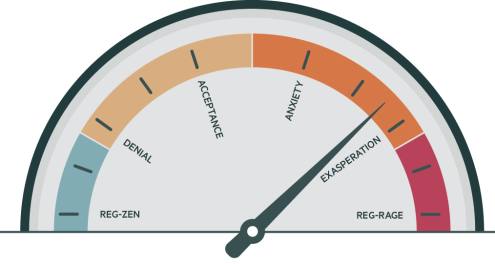Once the world's premier wealth manager and flagship for Swiss private banking, UBS has seen an outflow of clients mirroring the pain of its investment bank that was one of the most exposed to the subprime crisis. In 2008, the investment banking division lost SFr34bn ($30.3bn), which partly provoked a net new money outflow of SFr664bn in private client assets.
The woes of UBS are perhaps atypical. For some of its largest competitors, private banking is a small component that has not always fitted with existing lines. For UBS, it is the origin of the bank, and the troubles stem from the business model straying even further into investment banking. Former CEO Marcel Rohner said in April 2008: "We used our surplus cash flow from the wealth management business to promote organic growth in the investment bank. That was where we went wrong."
So, while other large groups may consider hiving off private banking activities in non-core markets, UBS is heading in the opposite direction. "In any crisis, people go back and look at their core business. Wealth management is at the core of UBS," says Juerg Zeltner, CEO of global wealth management at UBS.
The bank already has client win-back initiatives, but Mr Zeltner says that a fundamental improvement is the best way to restore confidence. "Many clients have been shocked to see what happened to us, and also what happened in the market as a whole. So they wait for UBS to be profitable, which will then make it easier for our client advisors, as the discussion will be more about the individual clients' needs, not about how UBS is doing," he says.
He emphasises that much of the lost business stems from clients diversifying their exposure into other banks, rather than closing down their UBS accounts altogether. And relationship manager losses to rivals have comprised only a negligible component. "Is the franchise walking out with client advisors? The answer is absolutely no. Of course I don't want to lose good client advisors, but it is not something that would change the economics," says Mr Zeltner. The bank is reinforcing its research-driven approach to ensure that its advisors are armed with the best possible strategy for client portfolios and can choose the best products on the market, through what Mr Zeltner calls a "guided architecture" approach. "What the crisis has shown is that the quality of this process of best selection can be a key differentiator in the marketplace. We should stress UBS as the market leader, we have not been hit by products blowing up in our face. There are many things that went well in the crisis," he says.

Juerg Zeltner, CEO of global wealth management at UBS
Americas separation
One part of the private banking business that has gone less well is the Americas operation. Following the May 2008 arrest of former UBS banker Bradley Birkenfeld for allegedly helping a tax evasion scheme in the US, the bank signed a deferred prosecution agreement in February 2009, under which it agreed to close down its cross-border private banking in the country. UBS is contesting on client confidentiality grounds a US summons for the details of 52,000 other accounts that the authorities say could show evidence of further tax evasion.
UBS has separated its Wealth Management Americas division from the rest of the global wealth management unit, only three years after originally combining them. But Mr Zeltner says this is not related to the cross-border case. Rather, the onshore US brokerage business proved less compatible than expected with the rest of the group.
"We wanted to extract synergies, but these have not been as big as anticipated. It is also a very different business because it is broker-owned, and the market is large enough to justify its own business unit," says Mr Zeltner.
To help its recapitalisation, UBS has already sold off units including Brazilian investment bank Pactual. Yet, the Pactual wealth management unit was far smaller than the UBS own-name presence in Latin America, which remains a promising region for private banking strategy. "We have a leading geographical footprint, and we want to play to that strength. In some markets we will be opportunistic and grow with the rebound," says Mr Zeltner.
If UBS and the market begin to stabilise from 2010, Mr Zeltner will be watching closely how restructurings at other global banking groups play out. "Some players will not only be selective in the business portfolio, but also in the segments they choose to serve. Our international tradition is on the ultra-high-net-worth segment, and some clients may decide they would rather be with us than with a less specialised, more universal bank," he says.











